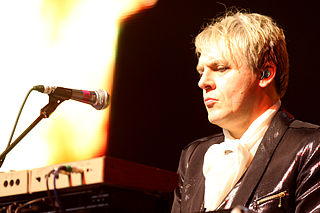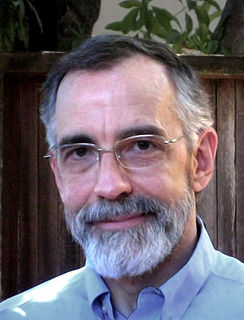A Quote by Nick Rhodes
I'm fascinated with genetic science, and I have been for a very long time. I always look at science and technology because I think that the developments in my lifetime have been so remarkable - and we're only at the tip of the iceberg with projects like decoding the human genome.
Related Quotes
In real life, when you have an emotional experience, it's never just because of the thing that's been said. There's the backstory. It's like [Ernest] Hemingway's iceberg theory - the current emotional moment is the tip of the iceberg and all of the past is the seven-eighths of the iceberg that's underwater.
Recently, results of the Human Genome Project have shattered one of Science's fundamental core beliefs, the concept of genetic determinism. We have been led to believe that our genes determine the character of our lives, yet new research surprisingly reveals that it is the character of our lives that controls our genes. Rather than being victims of our heredity, we are actually masters of our genome.
Literary science fiction is a very, very narrow band of the publishing business. I love science fiction in more of a pop-culture sense. And by the way, the line between science fiction and reality has blurred a lot in my life doing deep ocean expeditions and working on actual space projects and so on. So I tend to be more fascinated by the reality of the science-fiction world in which we live.
I think we're just scratching the surface. One of the most exciting aspects of 23andMe is that we're enabling you to watch a revolution unfold live during your lifetime, and I think that the decoding of the genome, in my opinion, is the most fascinating discovery of our lifetime, and you get to be part of it.
If it had been anything else, we would have said, 'People don't want us to do it. Forget it. Let's just leave it alone.' But this is not in that category. This is interesting science. New science. With a hint of a possibility of a very useful technology. Therefore, if you've got any integrity, you don't give up. You only give up if you find you are wrong. But as long as you believe that you are right, you have to continue. And you have to take the consequences.
The most remarkable discovery made by scientists is science itself. The discovery must be compared in importance with the invention of cave-painting and of writing. Like these earlier human creations, science is an attempt to control our surroundings by entering into them and understanding them from inside. And like them, science has surely made a critical step in human development which cannot be reversed. We cannot conceive a future society without science.
To those who think that all this sounds like science fiction, we point out that yesterday's science fiction is today's fact. The Industrial Revolution has radically altered man's environment and way of life, and it is only to be expected that as technology is increasingly applied to the human body and mind, man himself will be altered as radically as his environment and way of life have been.



































